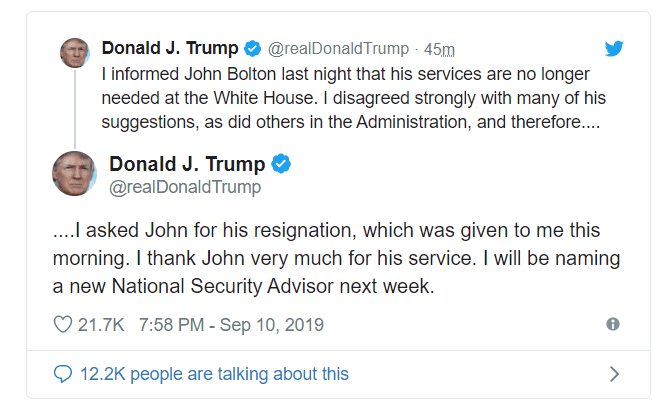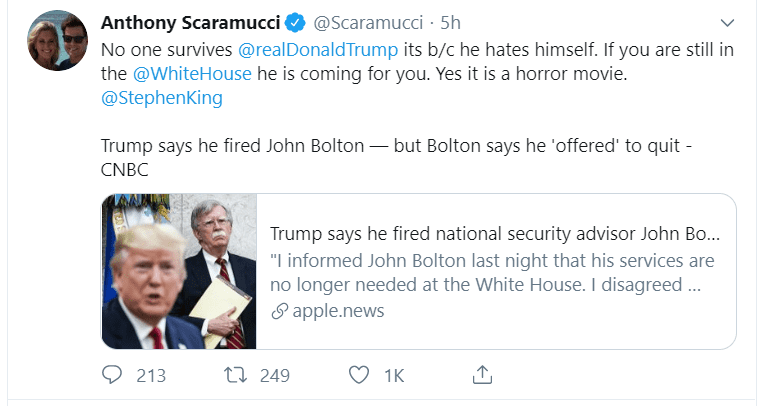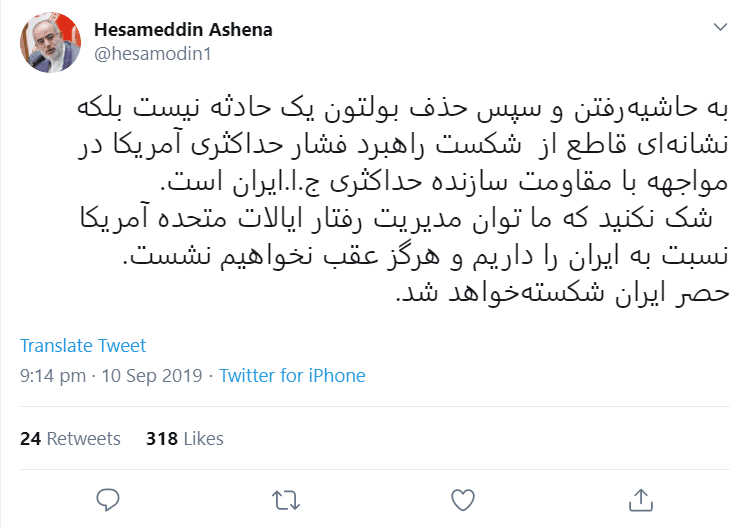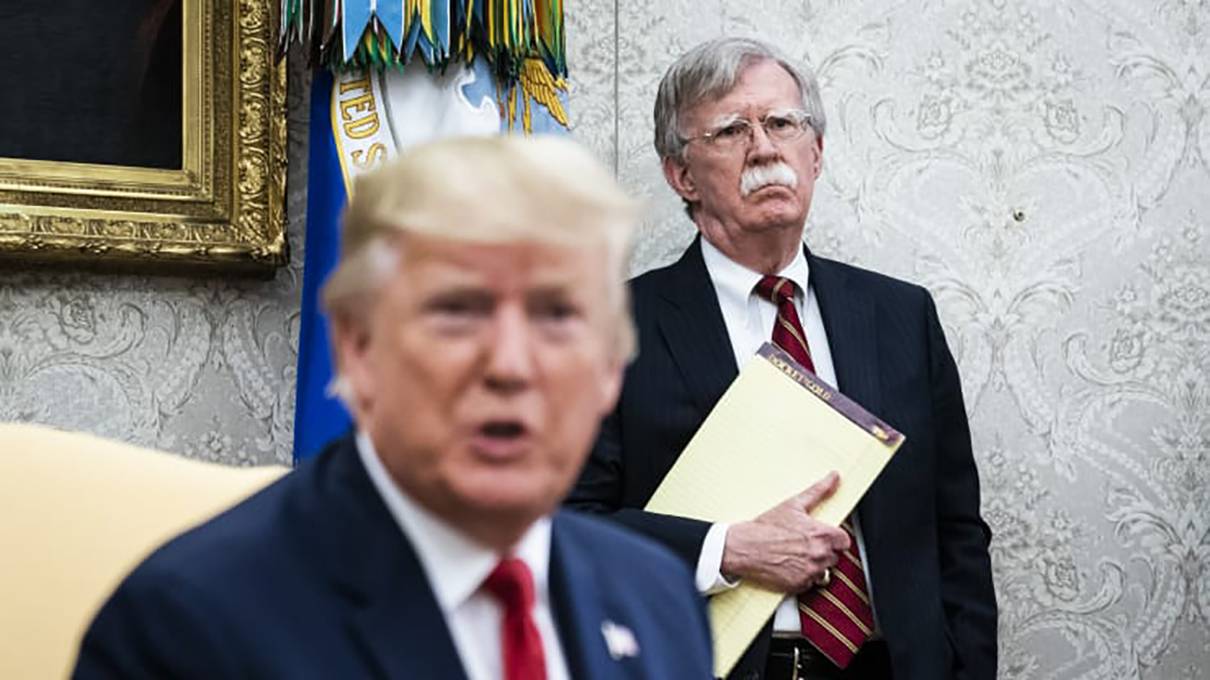Trump says he fired national security advisor John Bolton — but Bolton says he ‘offered to resign’
President Donald Trump said Tuesday he fired national security advisor John Bolton, saying on Twitter that Bolton had “disagreed strongly with many of his suggestions.”
But minutes later, Bolton in his own tweet said he “offered to resign” Monday night — and that Trump told him, “Let’s talk about it tomorrow.”
“I offered to resign last night. He never asked for it, directly or indirectly,” Bolton said in a later text to NBC News.
“I slept on it, and resigned this morning.”
Either way, the departure of Bolton, a hawk on Iran and North Korea, shocked Washington. The news sent crude oil future prices lower.
NBC News, citing a White House spokesman, reported that deputy national security advisor Charles Kupperman has been appointed acting national security advisor.
Bolton, who was named national security advisor to succeed H.R. McMaster in March 2018, is a harsh critic of Iran, and has advocated military strikes against that oil-rich nation.
White House press secretary Stephanie Grisham told CNBC, when asked if Trump’s once-secret invitation to the Afghan Taliban to meet at Camp David for peace talks was the breaking point of his relationship with Bolton, said: “No — it was many, many issues.”
In his announcement, Trump tweeted: “I informed John Bolton last night that his services are no longer needed at the White House. I disagreed strongly with many of his suggestions, as did others in the Administration, and therefore I asked John for his resignation, which was given to me this morning. …
“I thank John very much for his service. I will be naming a new National Security Advisor next week.”

The tweet was posted about 90 minutes before Bolton was expected to appear at a press briefing with Secretary of State Mike Pompeo and Treasury Secretary Steven Mnuchin. Bolton’s planned appearance had been announced by the White House, which had not given details of the nature of the event.
About 15 minutes later, Bolton posted this tweet.

“I’m never surprised,” a grinning Pompeo told reporters at the briefing when asked about Bolton’s exit occurring shortly before the briefing.
Fox News host Brian Kilmeade said on the air that Bolton had texted him, ” ‘Let’s be clear. I resigned.’ ”
Kilmeade added, “And I said, ‘Do you mind if I say that while we’re talking?’ and he said, ‘Yes.’ ”

White House deputy press secretary Hogan Gidley said, “The president asked for John Bolton’s resignation last night and it was delivered today.”
A day before he announced Bolton had been bounced, Trump blasted the news media, claiming reporters had ginned up false stories that his administration was in turmoil.

Senate Minority Leader Chuck Schumer, D-New York, said, “Today’s action by the president is just the latest example of his government-by-chaos approach and his rudderless national security policy.”
“When Ambassador Bolton’s extreme views aren’t enough for you, the United States is headed for even more chaotic times.”
Anthony Scaramucci, who spent an infamously short stint as Trump’s White House communications chief in 2017, tweeted, “No one survives @realDonaldTrump its b/c he hates himself. If you are still in the @White House he is coming for you. Yes it is a horror movie. @StephenKing.”

Bolton was the fourth man to serve Trump as national security advisor, and had the longest tenure of any of them.
The first one, retired Army Lt. General Michael Flynn, resigned after just 24 days in office after lying to Vice President Mike Pence about the nature of his post-election discussions with Russia’s ambassador to the United States.
Flynn later pleaded guilty to lying to the FBI about his conversations with the ambassador.
Flynn was in federal court in Washington on Tuesday, shortly before Bolton’s termination was announced, for a hearing at which a judge set his criminal sentencing tentatively for Dec. 18.

Hesameddin Ashena, an adviser to Iranian President Hassan Rouhanim, said in a tweet that Bolton’s termination was the result of Iran’s resistance to Trump’s pressure campaign against that nation, and proof that Iran is able to “manage” U.S. policies on Iran.










